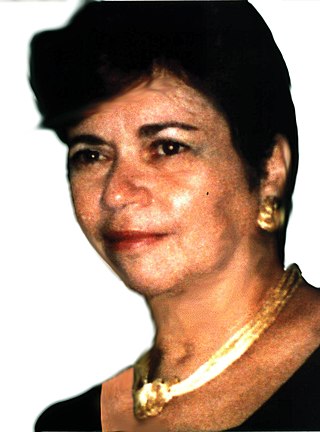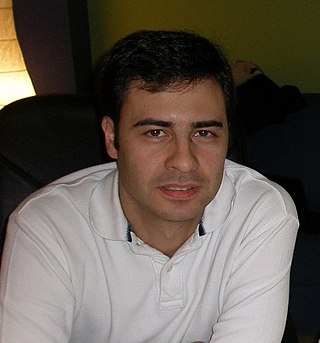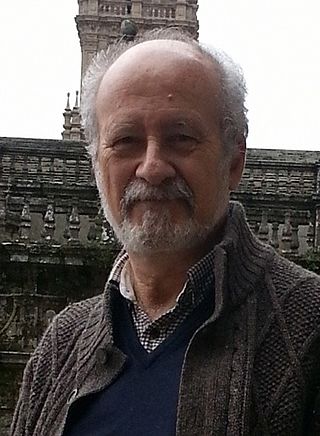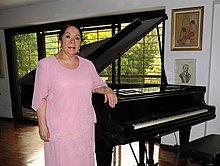
Vicente Emilio Sojo was a Venezuelan musicologist, educator and composer, born in Guatire, Miranda.

Joaquín Rodrigo Vidre, 1st Marquess of the Gardens of Aranjuez, was a Spanish composer and a virtuoso pianist. He is best known for composing the Concierto de Aranjuez, a cornerstone of the classical guitar repertoire.

Juan Bautista Plaza Alfonso was a classical composer. He began studies in medicine at the Central University of Venezuela but, with time, left in order to dedicate himself to music. His first teacher was Jesus Maria Suárez. He studied in Rome from 1920 and 1923 and obtained the title of professor of sagrada (sacred) composition. After his return to Venezuela he was named Master of Chapel at Caracas Cathedral and carried out this position until the year 1948. In the Caracas Superior Music School he taught music history and appreciation to composer Antonio Lauro and singer Morella Muñoz.
Daniel Ayala Pérez was a Mexican violinist, conductor, and composer.

Doris Magaly Ruiz Lastres is a Cuban musician and composer. Her compositions have been performed at a number of international music festivals.

Xavier Montsalvatge i Bassols was a Spanish composer and music critic. He was one of the most influential music figures in Catalan music during the latter half of the 20th century.
Víctor Varela is a Venezuelan-Swedish composer based in Gothenburg. His compositions include works for orchestra, vocal and instrumental chamber music, with electronics and computer devices.
Onutė Narbutaitė is a Lithuanian composer.

Alejandro López Román is a Spanish composer and pianist. Musician of eclectic style, his works cover both current symphonic composition like jazz or film music.
Alba Lucía Potes Cortés is a composer of contemporary classical music, and teacher at the Mannes School of Music, College Preparatory Division, in New York.

Isabel Aretz was an Argentine–Venezuelan researcher, writer, ethnomusicologist and composer.

Alicia Terzian is an Argentine conductor, musicologist and composer of Armenian descent.

Carmen Petra Basacopol was a Romanian composer, pianist, musicologist and academic teacher. She taught at the National University of Music Bucharest, between 1962 and 2003, and at the Rabat Conservatoire in Morocco in the 1970s. As a musicologist, she achieved a PhD from the Sorbonne University in Paris in 1976, with a dissertation about three Romanian composers who had influenced her, George Enescu, Mihail Jora and Paul Constantinescu, composers representing essential features of Romanian music.
Felicia Donceanu was a Romanian painter, sculptor, and composer.
Flores Chaviano is an accomplished Cuban composer, guitarist, professor and orchestral conductor that has achieved great international recognition.

José Luis Turina is a Spanish composer, grandson of Joaquín Turina.
Domingo Julio Liberato Macario Gómez García was a Spanish composer.
Sergio Fernández Barroso is a Cuban composer, performer and professor.
Corin Akl Jáuregui is a Venezuelan composer, pianist, and educator.
Alfredo Diez Nieto was a Cuban composer, conductor, and professor. He taught composition at Instituto Musical Kohly, the Amadeo Roldán Conservatory, the National Art School, and the Instituto Superior de Arte in Havana. He founded and conducted the Orquesta Popular de Conciertos. Diez Nieto composed orchestral works including three symphonies and chamber music for various instruments, using and transforming elements from Cuban folk music.










